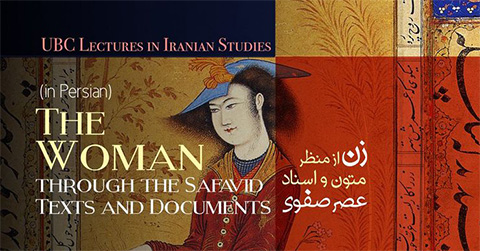

زن از منظر متون و اسناد عصر صفوی
سخنران: دکتر نزهت احمدی، دانشیار گروه تاریخ، دانشگاه اصفهان
علیرغم اهمیت موضوع سبک زندگی زنان در ایران پیشامدرن، در مباحث تاریخ اجتماعی ایران کمتر به این موضوع پرداخته شده است. زنان در آن دوران چگونه زندگی میکردند و از چه اختیاراتی برخوردار بودند؟ تعامل آنها با اطرافیان چگونه بود و موقعیت خود را چگونه ارزیابی میکردند؟ تا چه اندازه از حقوق خود آگاه بودند و به طور کلی چه حقوقی داشتند؟ جامعه چگونه برای حقوق آنها ارزش قائل میشد؟ اینها برخی از سؤالاتی است که محققان حوزهٔ تاریخ زنان با آنها مواجه میشوند. این سخنرانی با استناد به منابع مختلفی مانند اسناد مالی و حقوقی، نامههای شخصی، نقاشیها و متون ادبی عصر صفوی این موضوع را بررسی میکند.
The lifestyle of women in the pre-modern period is one of the important topics discussed in the field of social history of Iran. However, this topic has been neglected to some extent in this field of study. Certainly, the current status of women cannot be counted as being affected by the background of their actions and reactions throughout the history.
How did women live in those times and how much authority did they have? How was their interaction with people around them and how did they evaluate their own position? To what extent were they aware of their rights and generally what rights did they have? How did the society value their rights? These are some of the questions that scholars come across with in the field of women’s history, which are not easy, but too difficult, to find an exact and precise answer to. So that, it sometimes seems impossible to obtain a clear picture of the women’s lives and their everyday interactions.
Unlike expected, due to the patriarchal government and also aristocratic view of the history, historical resources do not provide us with the most information available in this field of study. Instead, the resources have only reported the history of the governors; however, women of the royal families have also been mentioned in some reports. Therefore, the researchers have mostly relied on Western travelogues, which despite their great value still have some shortcomings.
Western travelers have lived in Iran for a short time. They have often acquired information about women through others, since they did not have any access to the inner layers of the community, let alone having direct interaction with the women themselves. Therefore, we should seek for signs of women in other resources which contain rare information in this regard or are written with other purposes than recoding history. Thus, various documents from financial and legal documents to personal letters and even paintings must be studied carefully as well as historical texts and travelogues.
Moreover, other texts such as literary texts, either prose or verse, should be also examined. In other words, we must even have a closer look at narrative texts. Although, narrative texts seem to be far from reality in the first place, they can be valued well enough in case we accept the presented environment in the narrative is just the same as the one the author has grown up in.
Here, I have tried to study and analyze various resources in order to show how women’s lives have been manifested in such resources and that how we can give answers to at least some the questions raised about history of women by comparing such resources.
Speaker: Nozhat Ahmadi: Associate Professor of History, University of Isfahan
Should you have any questions, please contact the Department of Asian Studies at Asian.Studies@ubc.ca.